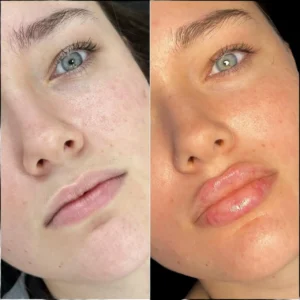
Introduction
Your mouth is not just about chewing and smiling. It reflects your overall well-being.
Stress affects us all, whether it’s tight deadlines, family duties, long night shifts, or a consistent lack of sleep. It keeps building up. This stress not only impacts your metabolism and sleep patterns but also your oral health.
Surprising right? Have you ever considered that stress and your dental health may be linked? But the truth is different. Your stress can have hidden effects, such as altered salivary secretion and immune suppression, as well as other minor changes that can directly or indirectly impact your oral health.
Therefore, in this blog, we take a closer look at the link between stress and oral health via topics like:
- Impact of Stress on Oral Health
- Common Stress-Triggered Oral Conditions
- Holistic Strategies to Combat Stress and Protect Oral Health
- Holistic Treatments at Sundance Dental and Orthodontics
Let’s understand them in the following sections.
Impact of Stress on Oral Health
Chronic and acute stress patterns affect your body in multiple ways, and your oral health is no exception. Let’s explore the dental consequences of stress in detail-
Teeth Grinding and Tension in Your Jaw
When you are under immense stress, especially emotional or psychological stress, your body enters “fight or flight” mode. This increases tension in your muscles throughout your body, including those in your jaw area. This often results in subconscious jaw clenching or teeth grinding, which is known as bruxism.
Dentists in Gallup, NM, suggest that bruxism can occur irrespective of day and night. During the day, it is mainly related to stress and can happen while you are driving, working, or concentrating. On the other hand, nighttime bruxism goes unnoticed until visible symptoms appear.
Bruxism can damage your teeth in multiple ways. It can cause cracked or fractured enamel, flatten or wear down your teeth, tighten or cause pain in your jaw muscles, result in temporomandibular joint dysfunction, or lead to increased tooth sensitivity.
Gum Diseases
Chronic stress results in the release of the stress hormone cortisol by the adrenal glands. It plays a significant role in regulating bodily functions, blood sugar levels, blood pressure, and other physiological processes under stressful conditions.
However, when cortisol levels elevate in the body over long periods, it suppresses the immune system and exacerbates inflammatory responses. This means your gums are not being protected against bacterial invasion, and inflammation is present around the gums.
Stress-related Habits
Stress-related habits like skipping brushing and flossing, eating a poor, sugar-laden diet, smoking or consumption of alcohol, and avoiding scheduled dental visits will worsen your gum health, especially if you are already suffering from gingivitis or periodontitis. Studies have proved that people with high stress levels are up to twice as likely to develop gum disease.
The warning signs of gum disease include red, swollen gums; bleeding gums; gum recession; persistent bad breath; and loose or shifting teeth.
Dry Mouth or Xerostomia
Stress controls the functioning of the autonomic nervous system, especially the parasympathetic division. It triggers cortisol and adrenaline levels, which reduces saliva production.
Besides, if you are taking any stress-related medications like antidepressants, antihistamines, and medicines to control anxiety, dry mouth or xerostomia comes as a side effect.
Role of Saliva
Saliva plays a crucial role in our oral health, neutralizing acids that can corrode our enamel, washing away any remaining food debris or bacteria, and promoting the remineralization of our enamel. It also contains enzymes that aid in digestion and immune defense.
Therefore, when saliva production is reduced, your teeth are more prone to plaque and bacterial build-up, and your gums become irritated. Halitosis or persistent bad breath also becomes very common.
Mouth Sores and Slow Healing
High stress levels also impact the functioning of our immune system, altering how our body defends against foreign substances. This means that your body will have a harder time healing from any injury or fighting off an infection.
Common Stress-Triggered Oral Conditions
Some of the common oral conditions that are caused by long-term stress are –
Aphthous ulcers or canker sores
They are small, round, and painful white lesions with a red border, which are triggered by stress, injury, or acidic foods.
Herpes Simplex Virus or Cold Sores
Although a virus causes it, stress can trigger an outbreak of it.
Delayed Healing
If you undergo any tooth extraction, surgery, or dental cleaning procedures, wounds may take longer than usual to heal, especially under chronic stress.
Holistic Strategies to Combat Stress and Protect Oral Health
Mindfulness and Relaxation
Include practices like deep breathing, meditation, or yoga in your daily routine. This will help reduce your cortisol levels, thereby easing muscle tension and improving saliva flow.
Jaw Exercises and Physical Release
Some of the typical daily exercises that you can follow to relieve your jaw stress are-
- Open your mouth wide slowly and hold it for 5 seconds.
- Do a lateral stretch by sliding your jaw to your right and holding it for 5 seconds. Repeat the same thing by sliding your jaw to your left.
- Yin-Yang jaw massage includes rubbing your jaw joints in a circular motion with your fingers.
- You can also apply heat or cold packs if you feel tightness.
Custom Treatment Options
Holistic Dentistry in Gallup, NM, includes custom night guards to prevent tooth damage, laser treatments to relieve pain and inflammation in soft-tissue areas, and more.
Holistic Treatments at Sundance Dental and Orthodontics
At Sundance Dental Clinic, we offer our patients a comprehensive toolbox of natural and holistic treatments, all of which are customized to address their individual needs and alleviate stress-related oral issues.
Composite, Mercury-Free Fillings
Traditional amalgam usually contains mercury, which is a potential toxin and might cause physiological stress. At our clinic, we use composite, tooth-colored fillings, which are safe, aesthetically pleasing, and hypoallergenic.
Laser-assisted Periodontal Care
CO2 laser technology is used to treat cavities, gum disease, and soft-tissue overgrowth with reduced trauma, anxiety, and recovery time.
Sedation Dentistry
If you become anxious during dental treatment, at Sundance, we offer nitrous oxide and intravenous sedation to ensure a calm, stress-free experience.
TMJ Treatment
This includes bite guards or bracing to protect your enamel and relieve bruxism during your sleep. Additionally, it offers muscle therapy to help alleviate stress and jaw tension.
Takeaway
- Stress decreases saliva production, alters immune responses, and fosters unhealthy habits that impact your oral health.
- Oral consequences include cavities, gum inflammation, TMJ pain, and bruxism.
- Holistic dentistry treats teeth as part of a living system, rather than as objects that need to be fixed.
- Treatment options involve a combination of daily calming routines, medical guidance, and advanced tools.
- Ready to fix your smile and oral health? Connect with our experts at Sundance of Gallup today.





